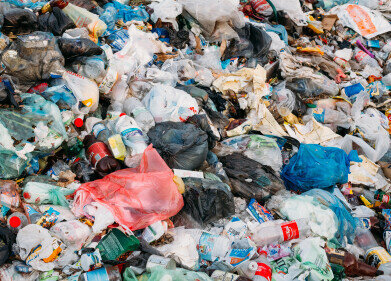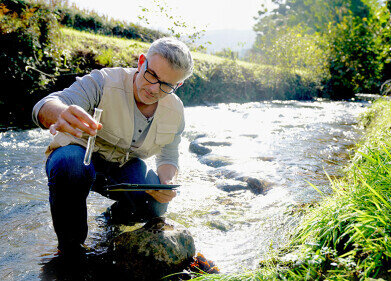Environmental Laboratory
The ABCs of Sustainable Development
Feb 07 2015
Look at the mission statement, aims or website of many major organisations in the United Kingdom, and you will find a mention of sustainable development or sustainability — the UK Gov website, the BP homepage, even McDonald’s has a sustainability webpage.
Let's take a look at some of the ABC's of sustainable development, or sustainable consumption and production (SCP), as defined by the United Nations Environment Programme.
Does your organisation have a sustainability process?
Agenda 21
Agenda 21 is a key commitment, made in June 1982, by over 178 governments to undertake a plan of action —globally, nationally and locally — in every area where humans impact on the environment.
Best Available Technologies
This means that the best, or state of the art, processes or operational methods should be used to limit the environmental and social impact of a process.
Carbon Footprint
The total amount of greenhouse gas (GHG) emissions caused by an organisation or event. Usually reported as the equivalent amount of carbon dioxide.
Circular Economy
The balancing of economic development with environmental and resource conservation. Circular economies typically have low energy consumption, low pollution levels and are efficient. There is an emphasis on protecting the environment and recycling of resources.
Eco-efficiency
A management philosophy that seeks environmental improvements that give economic benefits — business opportunities that allow companies to be environmentally friendly and more profitable.
Ecodesign
Design that reduces the environmental impact of products throughout their life-cycle.
Ethical Trade
Under the banner of ethical trade, retailers and suppliers take a responsibility for improving the working conditions of the people who produce the goods they sell. This could include wages, working hours, health and safety and the right to join a trade union.
Factor 10
The possibility that products could be produced by a method having a resource intensity that is one-tenth that of the standard process.
Fair Trade
Fair trade relates mainly to developing countries and seeks to strengthen the position of small-scale producers so that they are not swamped by global corporations. Fair division of profit and improved social conditions are two of the long-term aims of the fair trade principle.
Greenwashing
This is where companies are all marketing and talk rather than substance. They mislead consumers about their environmental practices or service benefits rather than implementing sound environmental practices.
Polluter Pays Principle
Principle stating that the costs of pollution should be borne by those who cause it.
3Rs (Reduce-Reuse-Recycle)
A Japanese initiative to promote the efficient use of materials that is widely used throughout the world.
Sustainable Products
Sustainable products should include environmental and social factors at all stages of their life-cycle: from design, through manufacture and use, and the recycling of the materials.
Technology transfer
This is about sharing best practices amongst different stakeholders, and enabling the technology to be replicated and used with indigenous technologies.
Water Footprint
A measure of the direct and indirect water consumption in a product’s life cycle. In Europe this is addressed by the Water Framework Directive.
Digital Edition
IET 34.2 March 2024
April 2024
Gas Detection - Biogas batch fermentation system for laboratory use with automatic gas analysis in real time Water/Wastewater - Upcycling sensors for sustainable nature management - Prist...
View all digital editions
Events
Apr 30 2024 Melbourne, Australia
Apr 30 2024 Birmingham, UK
May 03 2024 Seoul, South Korea
May 05 2024 Seville, Spain
May 06 2024 Minneapolis, MN, USA


















